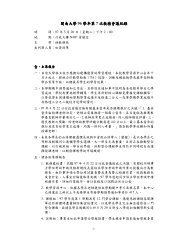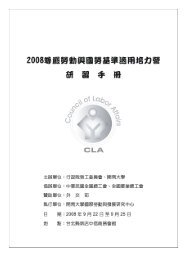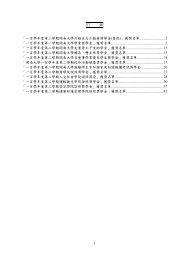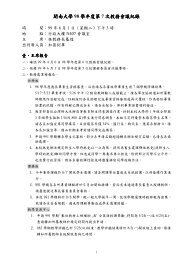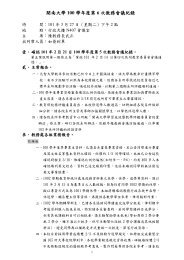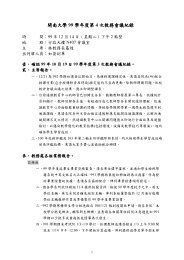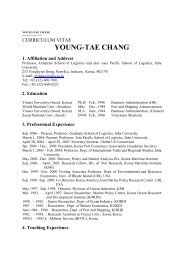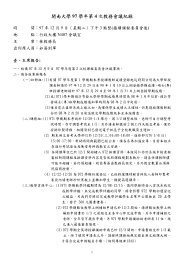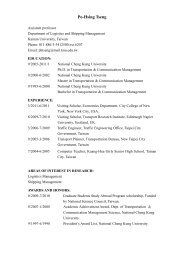活動手冊 - 開南大學
活動手冊 - 開南大學
活動手冊 - 開南大學
You also want an ePaper? Increase the reach of your titles
YUMPU automatically turns print PDFs into web optimized ePapers that Google loves.
Pedagogical Ethics and the Spirit of Capitalism<br />
Jonathan Butler, Ph.D.<br />
Assistant Professor<br />
Department of Applied English<br />
Kainan University<br />
Abstract<br />
This paper, incorporating a very explicit allusion to Max Weber’s celebrated<br />
treatise, The Protestant Ethic and the Spirit of Capitalism, seeks to use Weber’s<br />
well-known thesis as a starting point, a springboard of sorts, with the key difference<br />
being the subject of inquiry—pedagogical ethics instead of the protestant ethic—in<br />
relation to capitalism. Furthermore, the focus of this paper narrows the scope of<br />
capitalism to a field of terrain comprised solely of the material, imaginative projections<br />
that contemporary undergraduate students engage in as they consider their future lives<br />
after graduation. In short, what dreams of wealth inhabit the minds of our students and<br />
how does our teaching affect these dreams?<br />
Like Weber over one hundred years before me, I would like to suggest that an<br />
ostensible opposition is counterfactual. For Weber, the protestant work ethic,<br />
long-considered to be the nemesis of capitalist ideology—eschewing as it seemed to do<br />
the trappings of wealth, decadence and grandiosity—is actually a contributing factor to<br />
capitalist development. Similarly, it has long been assumed that academic teaching<br />
inhabits a realm far from capitalist concerns, that the “true” teacher, hermetically sealed<br />
in his lofty “ivory tower,” oblivious to the crass goings-on of materialist culture,<br />
instills in his or her students a love of learning for its own sake which is independent of<br />
the instrumental uses of knowledge comprising the capitalist world. Nothing, I would<br />
like to suggest, could be further from the truth.<br />
Widely-acclaimed American critic and novelist John Fowles once observed the<br />
remarkable irony that professors of literature spend their entire lives instilling in their<br />
students a hatred of bourgeois culture—the very culture in which these students will<br />
have to make a livelihood for themselves. Granted, most of modernist literature does<br />
indeed embody a conscious distaste for consumer culture, for the sorry life of the<br />
masses in general, elevating, instead, the life of the artist above the mundane concerns<br />
of the capitalist world. One need only think of Woolf’s To the Lighthouse, or Joyce’s A<br />
-12-



